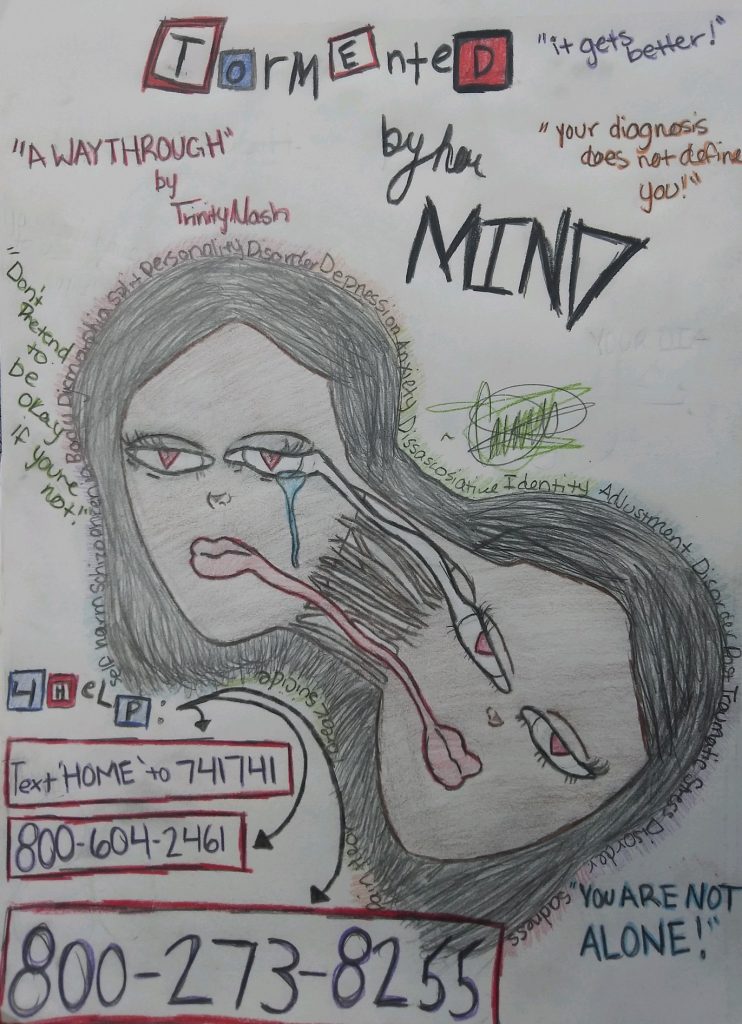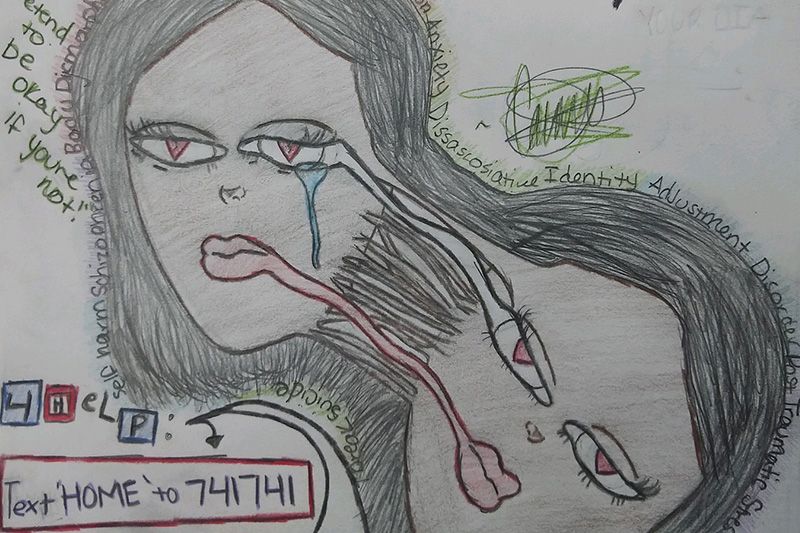BY TRINITY NASH, 15, Youth Farm Participant
 Over the course of a few months of isolation, many teens have experienced a decrease in mood and happiness, and those are just teens who are used to being social and out and about. Some teens feel isolated and have a decrease in mood and happiness daily, no matter the circumstances.
Over the course of a few months of isolation, many teens have experienced a decrease in mood and happiness, and those are just teens who are used to being social and out and about. Some teens feel isolated and have a decrease in mood and happiness daily, no matter the circumstances.
Ranging from schizophrenia, dissociative identity disorder, post-traumatic stress disorder, and most commonly, depression and anxiety; many teens experience mental illness on a day to day basis. Managing and dealing with mental illness as a teen can be very stressful, seeing as you have to deal with things like school and work that may make your condition worse and harder to manage.
Anyone can experience mental downfalls; boys and girls, whether they are gay, bi, trans, black, orange or blue. Societal opinions and mental illness butt heads continuously, and I will tell you how.
In boys, mental illness seems to be swept under the rug and veiled by society’s opinion on how a man should act. Boys are supposed to be these strong individuals who don’t have emotions and whose key functions are working, providing and reproducing.
Society tells boys it’s not okay to cry, and if you are in any way, shape, or form the least bit vulnerable, you are automatically gay or in touch with your feminine side. Mental illness in boys is especially important, and it would be more effective for the problem to be squashed during adolescent years rather than growing up with those problems or, even worse, suicide.
That leads to my next topic, a fair warning that this may trigger some readers: suicide. Suicide is a successful attempt at purposefully taking your own life. In my personal experience, suicide is the absolute last measure taken when one is unstable in an unhealthy mindset.
Mental instability leads to an imbalance emotionally and sometimes even physically. Self-harm and suicide go hand in hand, and one usually is a gateway to another. Suicide is used as a means to completely rid oneself of the misery that they are experiencing and the littlest of things could be misery to someone.
To one who is not experiencing mental turmoil, something very small could be very small, and to someone who is, it could be very big. That’s where adjustment disorder comes in.
Adjustment disorder is a group of symptoms, such as stress, feeling sad or hopeless, and physical symptoms that can occur after you go through a stressful life event. The symptoms occur because you are having a hard time coping. Your reaction is stronger than expected for the type of event that occurred.
Again, personally, when I was told that I had an adjustment disorder, my initial thought was that it had to be some type of mistake. However, further on in life, I would constantly shame myself for holding onto things and allowing things that are so small get to me and allow it to keep me down for so long without realizing that it was out of my control.
The reason why mental illness is so important, especially in adolescents, is that we hold the future, and instead of allowing the disease to steep in the minds and continue to grow, it’s important to squash it at a young age. That being said, mental illness is more than talking, therapy, and medication; mental illness is a self and mind thing.
One has to be willing and wanting to receive help, and sometimes help is not beneficial for everyone. Trying to force someone who is battling mentally, which in itself is just battling your own mind, will only make them shut down more.
Also, don’t just look at someone’s physicalities to try and determine whether or not they are mentally unstable. The control center of a human being is the mind, and when you don’t have control over that, you lose control of EVERY other aspect in life.
Don’t allow the media or stigmas and stereotypes to stop you from gaining control of yourself. The diagnosis is just that — a diagnosis and does not define you in any way. Cope healthily and live because even though it may not feel like it, it does get better.









